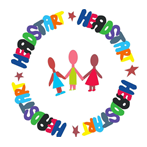This time last year, three colleagues from the HeadStart Team; James, John and Julie, enrolled in the University of Sunderland’s, Gender and Diversity module, achieving a level 5 accreditation for their work. The team was keen to undertake this work as they acknowledge the significant impact it has on their work around mental health and wellbeing in school comunities.
As many of you know, one of the most significant current discussions in education is the mental well-being of children and young people. 1 in 4 people experience mental health problems in England every year, and 1 in 6 children and young people in England have a diagnosable mental health illness. These figures are rising due to the effects of the Covid-19 pandemic; 83% of young people with mental health needs agreed that the pandemic worsened their mental health, and many reported self-harm with suicidal intent.
Now consider these factors and add in thoughts, feelings and confusion around sexuality or gender identity. Whether, these feelings will be accepted by family, friends and society. The fear that you may be abused, bullied, rejected or even made homeless due to these feelings. Being unable to see how you fit into the world and not being able to see others like you. Worried about how your body does not match how you are feeling and being disgusted by what you see. Recognising that your situation is very different from what you see around you. What if these feelings are part of who you are and cannot be changed; should you hide them?
In 2017, lesbian, gay, bisexual and transgender (LGBT) people were recognised as more likely to experience poorer mental health than heterosexuals. In 2020 Mind confirmed that LGBTQ+ people were two times more likely to report having a mental health problem in England. LGBT people were identified as being at greater risk for suicidal thoughts, substance misuse and self-harm. These figures show the need for the Team and others that work with children and young people to educate themselves and become more aware of gender diversity.
The Team thoroughly enjoyed the course and was able to find out more about the issues that our children and young people face and how they can support them through these challenges. As part of the course the Team produced an information leaflet that we thought would be useful to share.
Interested about finding out more about the course? Included is the course synopsis and the contact details for the university.
University of Sunderland, Gender & Diversity Course Synopsis:
The Gender & Diversity module is an accredited short course (10 weeks) delivered online via Teams. The course is designed for anyone who works within education and has an interest in learning more about LGBTQ+ inclusion, specifically non-cisgender identities (trans/non-binary).
The course explores the concept of ‘gender diversity’ within the educational context. We strive to meet the needs of professionals from a range of environments including, though not limited to, primary, secondary, and further/higher education, and those who work in diverse learning environments such as SEN settings and alternative provision. The module will investigate current and historic debate surrounding the inclusion of gender diverse students and staff in education, contextualised within legislative framework. Students will be introduced to the concept of gender diversity and the ways in which positive discourse can be facilitated, underpinned by the concepts behind inclusive policies in the UK education system. There will be consistent opportunities to discuss and debate how policy translates to practice in educational settings, identifying a range of barriers and challenges pertaining to gender inclusivity. Gender diversity will be explored critically in relation to racial, cultural, faith, and global perspectives. The module will also compare some of the current support models for gender-diverse people within and beyond the education system.
The course is accredited (30 MA credits available) and includes 2 assignments – 1 x leaflet and 1 x critical analysis.
For further information, and if you would like to sign up for this course, please email Sara Jolly (sara.jolly@sunderland.ac.uk) with the subject “Gender and Diversity”.
Further information leaflets below:
Creating a Gender Inclusive Environment For Your Peers in School
Supporting Gender Diversity in Secondary School
Championing Gender Inclusion In Educational Settings
Published: February 2
